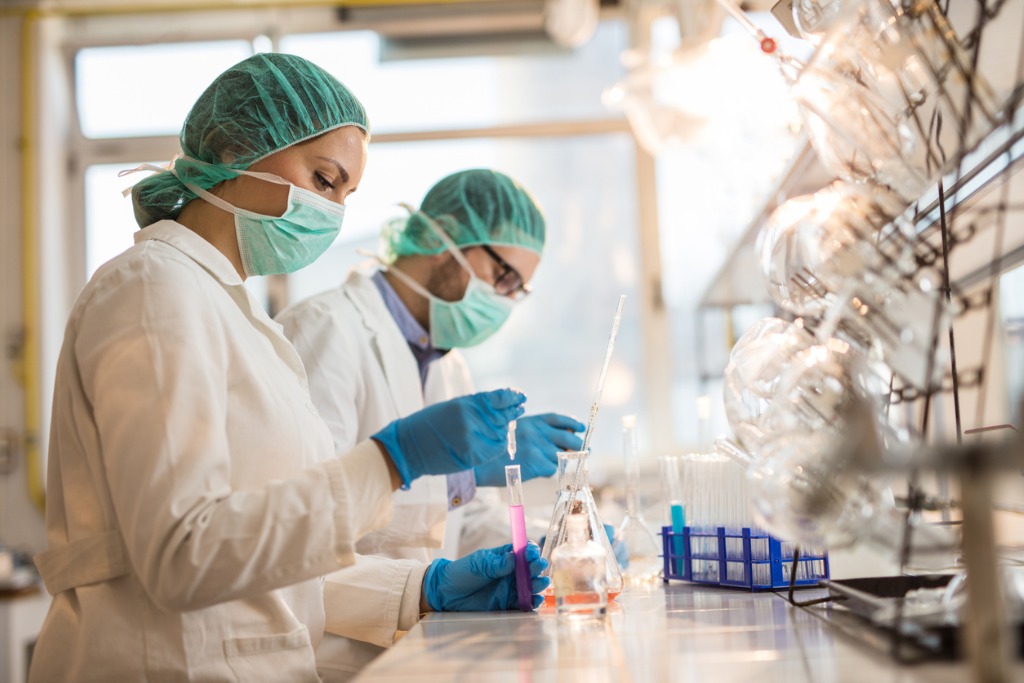As the COVID-19 pandemic persists worldwide, researchers are working to safely and effectively bring new treatments and vaccines to hospitals and physicians in order to detect the disease, curb its spread and help save lives.
Since the beginning of the pandemic Northern California physicians with Sutter Health have been able to access several clinical trials throughout the pandemic and offered the therapies to their patients, providing them with access to cutting-edge, investigational tests, treatments and vaccines being studied in clinical trials across the U.S. and at Sutter.
“Through our organization’s portfolio of clinical trials and research studies, Sutter is contributing new knowledge to help advance science aimed at safeguarding the health of our patients and communities,” says Leon Clark, Vice President, Chief Research and Health Equity Officer at Sutter. “Our researchers are at the forefront of fighting this emerging disease, and are collaborating with leading experts from public and private organizations across the U.S.”
Here’s how today’s research becomes tomorrow’s potential clinical practice at Sutter:
Studying potential therapies to treat people with COVID-19:
- Seven Sutter acute care hospitals enrolled patients into clinical trials sponsored by Gilead Sciences to test the antiviral drug remdesivir. First developed in 2009 and used during the Ebola outbreak in 2014, remdesivir was approved by the U.S. Food and Drug Administration in October 2020 for the treatment of hospitalized patients with COVID-19. A total of 48 patients from across the Sutter network were enrolled in these studies.
- Sutter and Vitalant collaborated to offer an investigational treatment involving convalescent plasma—blood plasma collected from people who have recovered from COVID-19—in hospitalized patients with severe cases of the disease. Rich in protective antibodies, convalescent plasma may lessen the duration and intensity of COVID-19. Plasma from one donor can treat as many as four patients with severe disease.
Studying potential therapies and vaccines to prevent COVID-19:
- Offering patients access to a Phase 3, international clinical trial testing an investigational COVID-19 vaccine: Alta Bates Summit Medical Center (ABSMC) is participating in a study of a vaccine made by AstraZeneca. The clinical trial aims to enroll approximately 500 adults aged 18-55 years and will test the safety and effectiveness of the vaccine candidate, known as AZD1222, compared with placebo. Eligible study participants are encouraged to contact study coordinator Ankita Bhalla or phone (510)-295-7090.
- ABSMC will enroll approximately 30 study participants to a clinical trial testing a monoclonal antibody against COVID-19. Monoclonal antibodies—synthetic versions of the immune system’s own weapons against viruses—are being tested as a means of preventing COVID-19 in studies worldwide. The study at ABSMC will determine the safety and effectiveness of an antibody made by Regeneron, to prevent COVID-19 in people who have been in close contact with infected individuals.
Addressing the impact of the pandemic on mental health and wellness:
As COVID-19 ushers in uncertainty that may evoke anxiety, depression or other mental health concerns for today’s youth, researchers are exploring potential new avenues for identifying such mental health concerns. Researchers are collaborating on a new study conducted within Sutter’s network that may offer a new option through the use of new tools for the early screening of depression and suicide risk.
Advancing health equity, and developing solutions to achieve optimal health outcomes for all patients across Sutter’s integrated network:
Sutter’s Advancing Health Equity team undertook a thorough data analysis of Sutter’s not-for-profit system’s COVID-19 patients to study how the illness affects people disproportionately based on race and ethnicity.
In collaboration with the University of California at San Francisco and other healthcare sites across the U.S., health equity researchers at Sutter are seeking to uncover how social determinants of health (such as financial challenges, environmental and physical conditions, and social factors) may impact patients’ access to COVID-19 tests and treatments. The study aims to understand how various policies and response strategies may affect individuals and the spread of the virus.
To learn about the spread of COVID-19 during pregnancy, and if infection rates differ by race, ethnicity and other factors, Sutter launched the Maternal CARE study.
Developing new tests for early detection of COVID-19:
Researchers at PAMF’s Research Institute co-led the study of the first all-in-one molecular test to diagnose COVID-19 infection. The U.S. Food and Drug Administration granted Emergency Use Authorization for the test earlier this month.
Studying “biomarkers” that may help identify and predict patients at risk of severe COVID-19:
Sutter researchers are testing whether proteins and other identifiable biomarkers in routine blood samples may aid in the early identification of high-risk patients hospitalized for COVID-19.
Collecting data on how the virus spreads and what the curve of infections may be in the coming months:
Sutter has created data registries and is compiling statistical information that is being used to discover predictive models of COVID-19 and its spread.
Curious to learn more about Sutter research? Visit sutterhealth.org/research.





